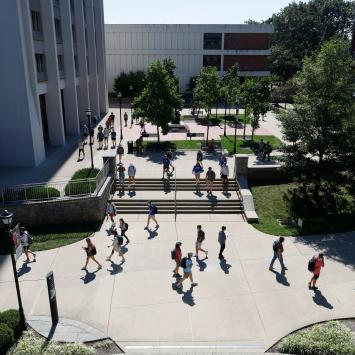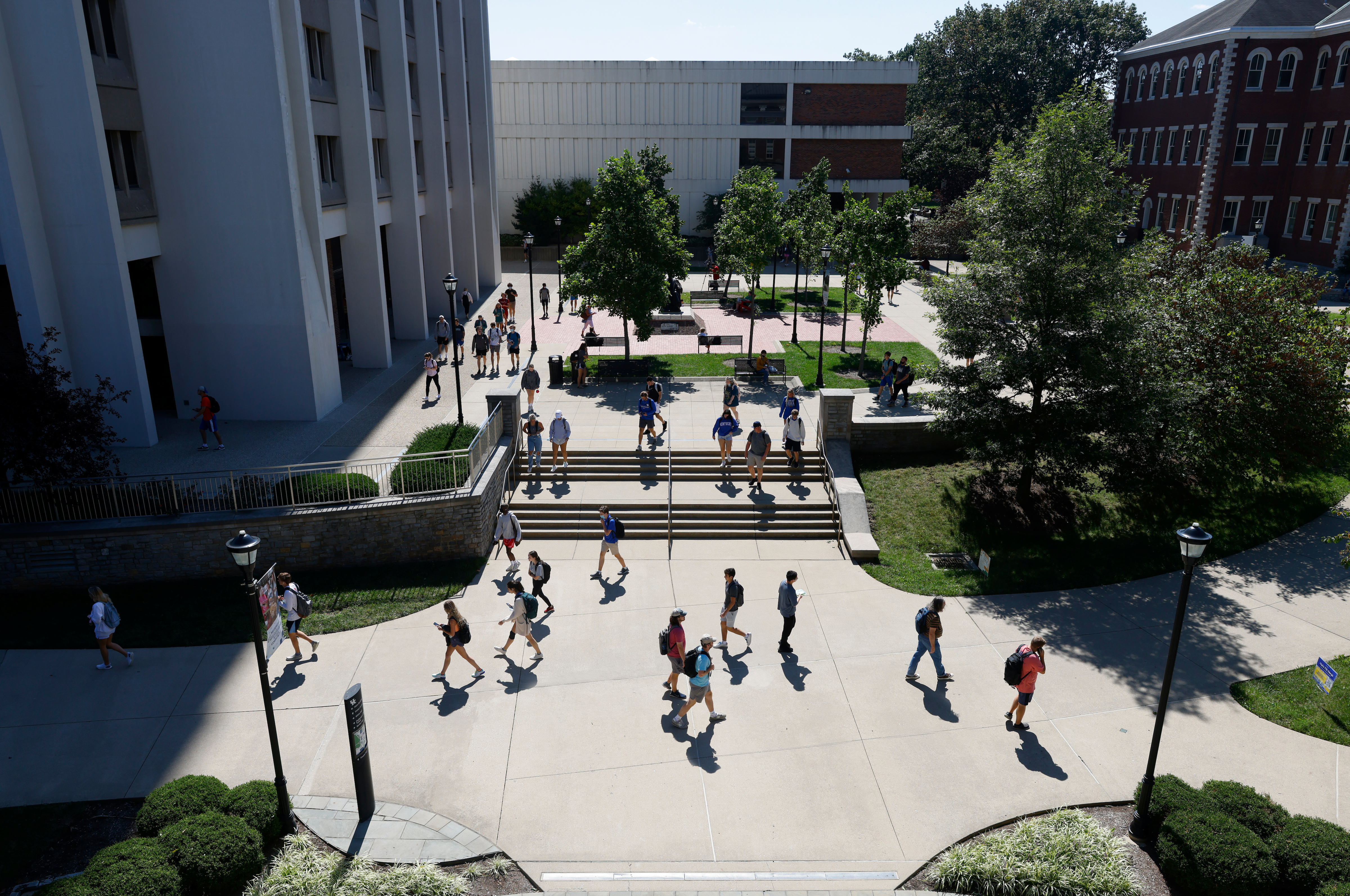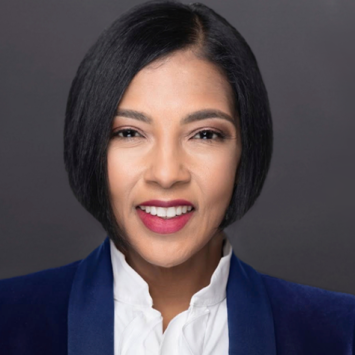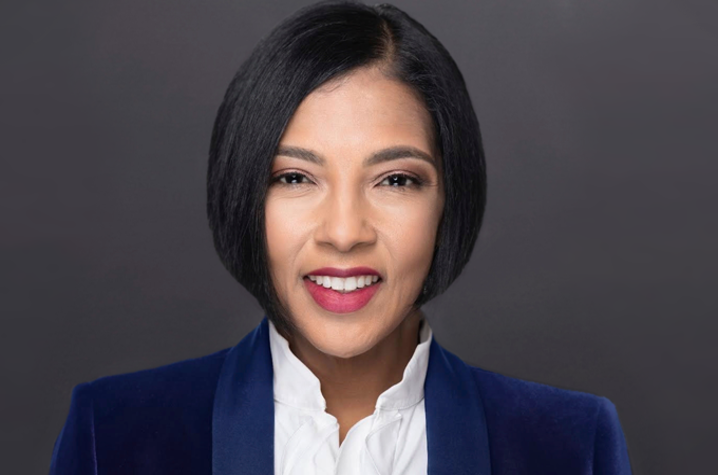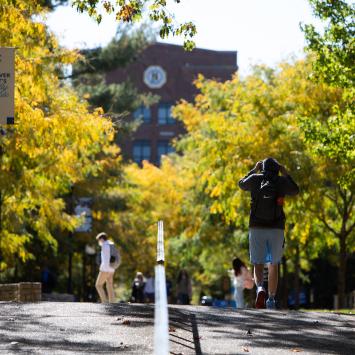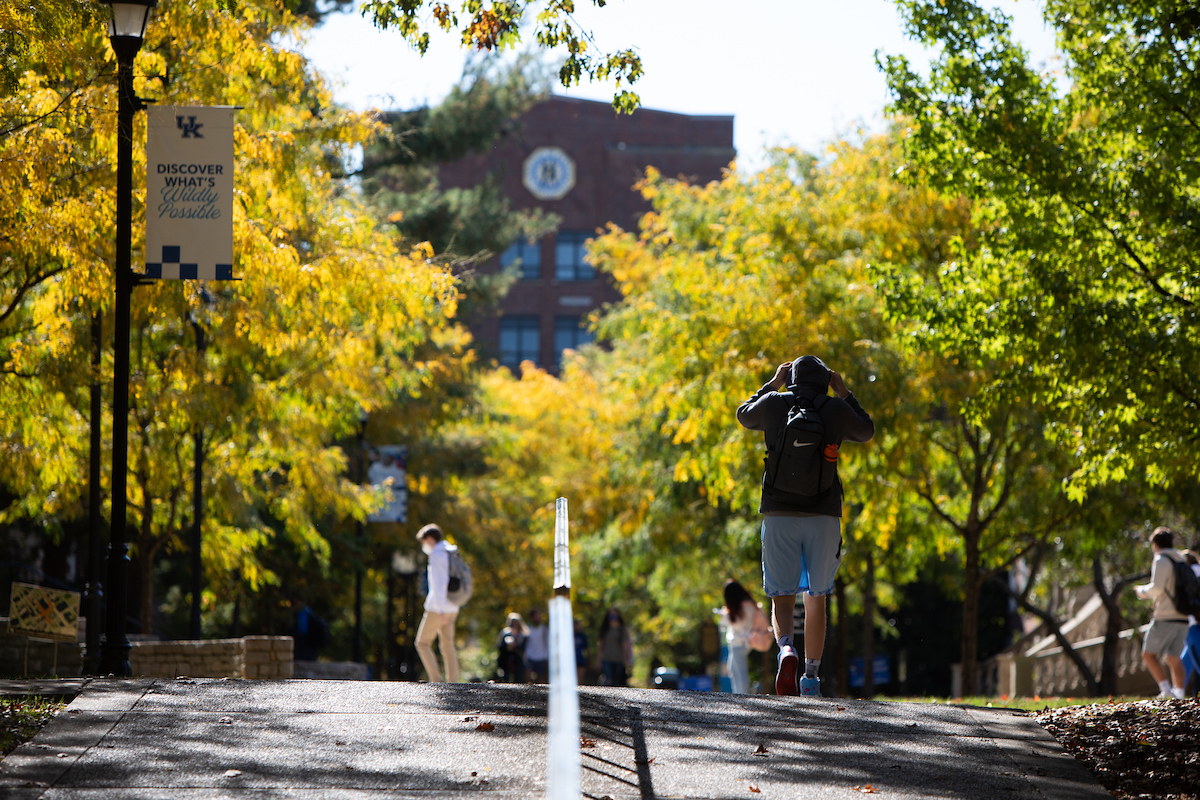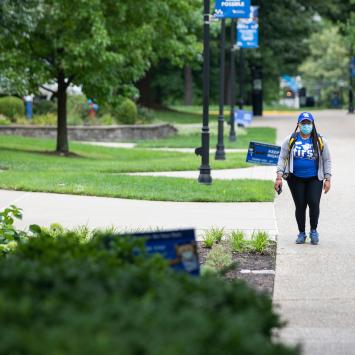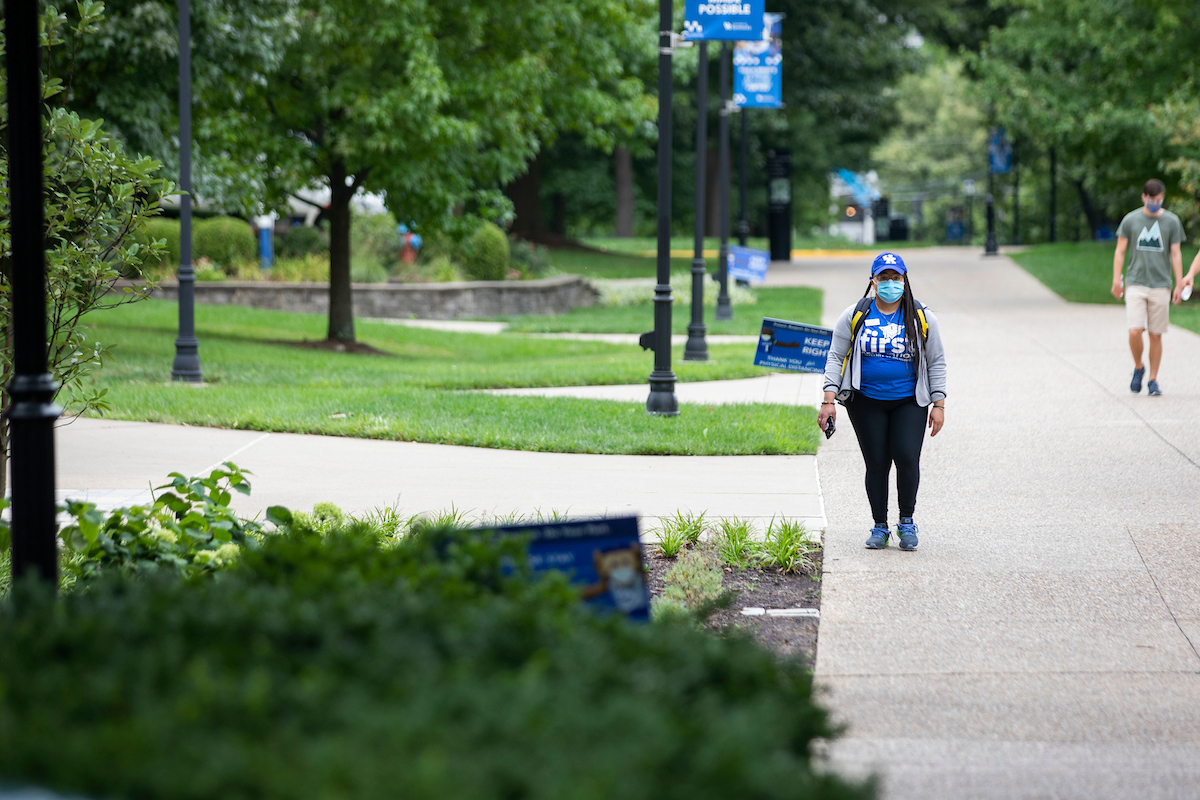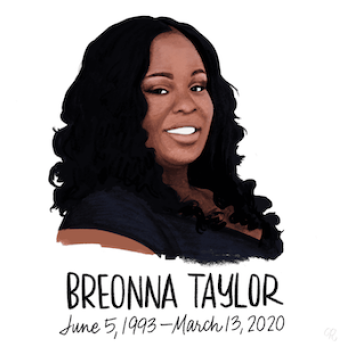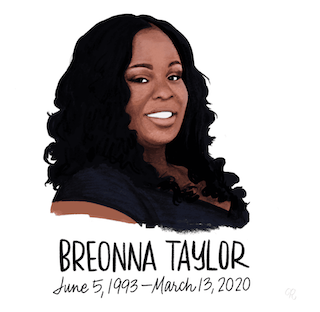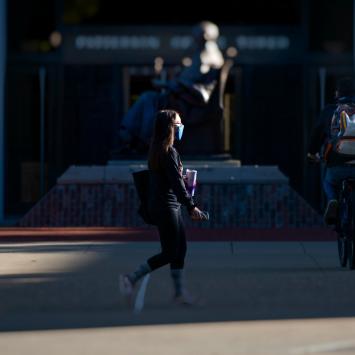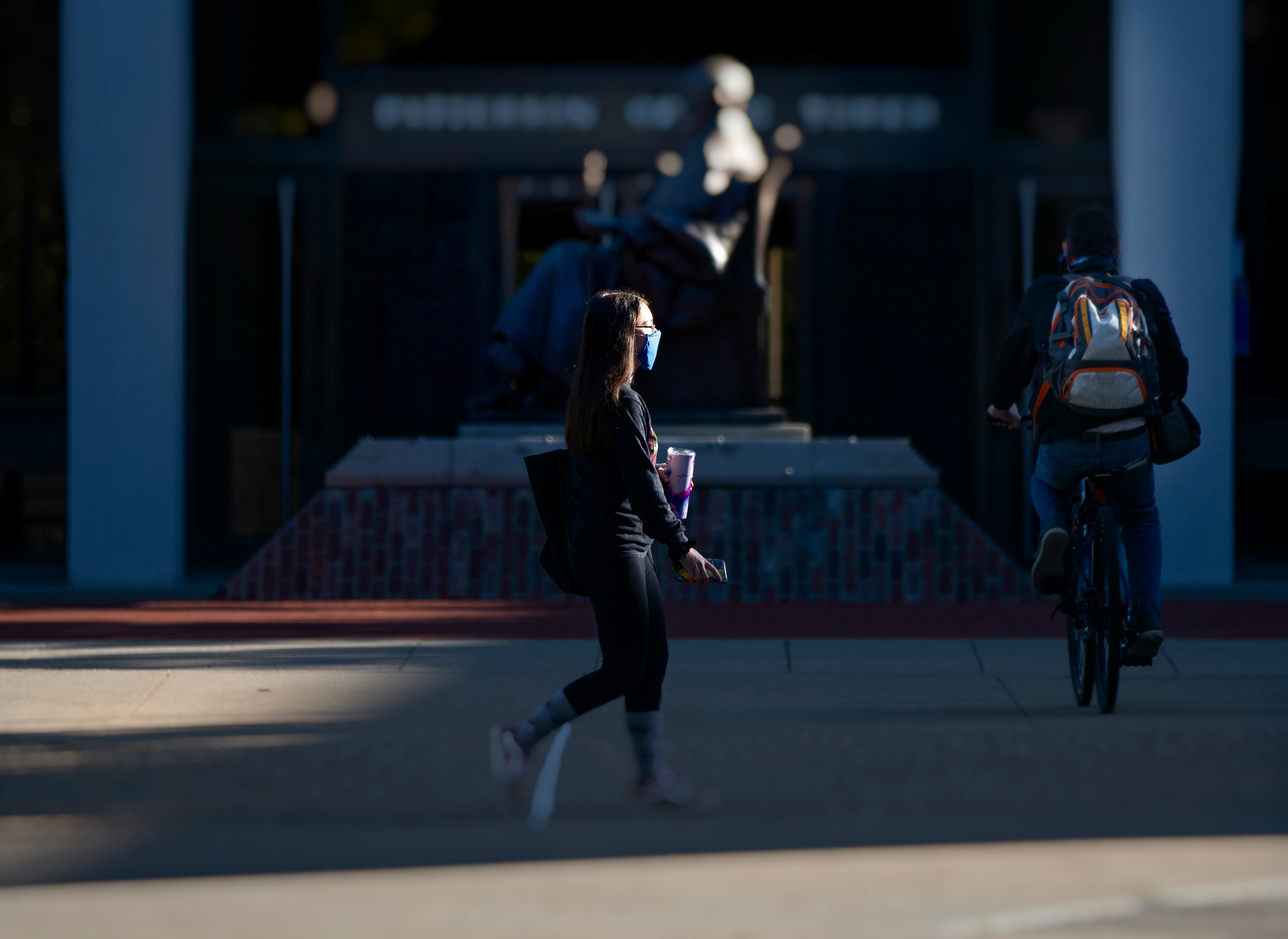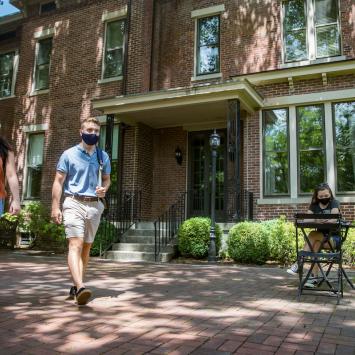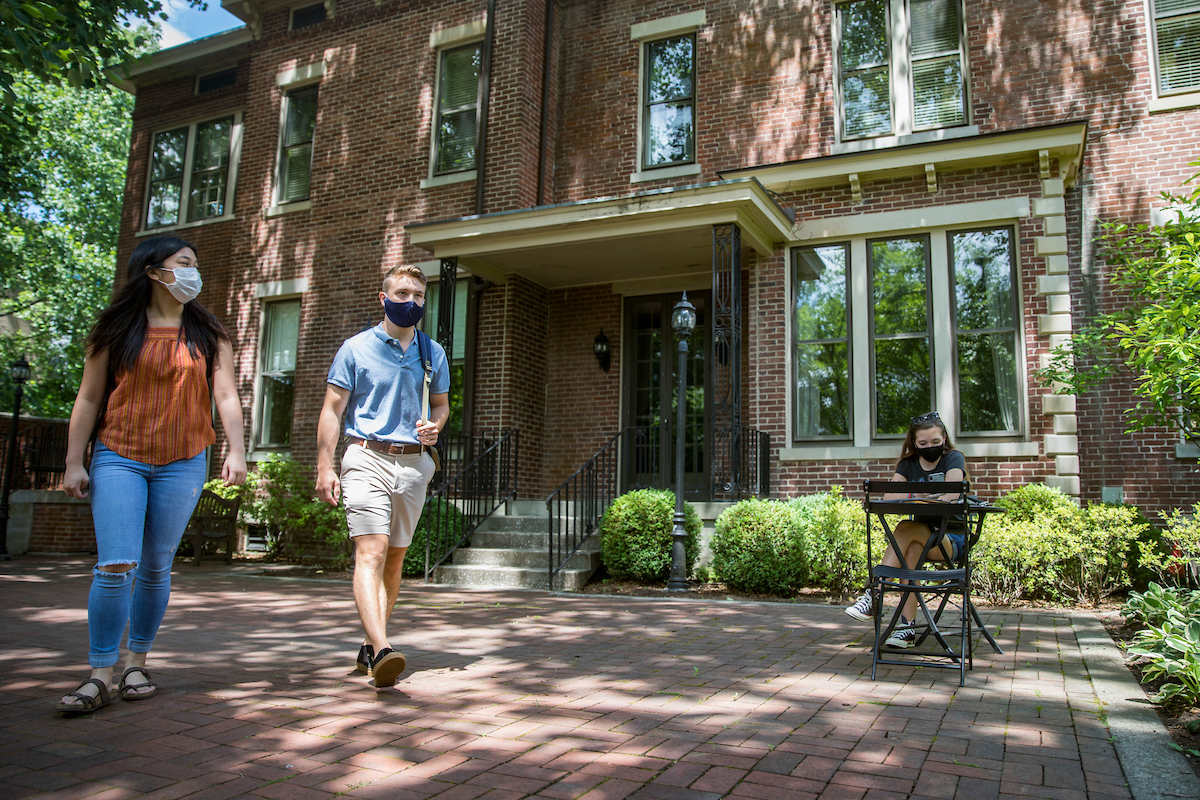|
|
Reflecting on what happened; moving forward together
By Eli Capilouto
Campus Community,
It is a season for giving thanks. And one of the many things I am continually thankful for is the blessing of being in community with you and on behalf of Kentucky.
But I believe it is also a season for reflection — on what we have accomplished together and, as always, what there is still to do.
It’s in that context that I want to provide updates following the recent violent and racist assault that horrified so many of us and deeply traumatized Black students, employees and community members.
It has been a painful reminder to me of why the ongoing diversity and inclusion conversations we are having with people throughout our campus — regardless of race or identity, who people love or what they believe — are so important.
Even with the progress that has been made, our community’s show of solidarity and calls for change reinforce how much more needs to be done.
Under the leadership of Dr. Katrice Albert, our Vice President for Institutional Diversity, we are solidifying and institutionalizing diversity, equity and inclusion (DEI) efforts that stemmed from conversations we’ve had with inclusive leaders across decades.
Several initiatives completed or well under way include our $10 million in university investment for our UNITE Research Priority Area, DEI learning modules for students in our UK 101 courses and supporting small, minority-, woman- and veteran-owned businesses and vendors through our Supplier Diversity Program. Faculty in our African American and Africana Studies program — and other units — have long been engaged in this hard work as well, and we need to support and amplify their efforts.
Yet, importantly, there are several significant efforts that I have not provided updates on recently. We are taking steps that I believe do respond to some of the concerns we have heard over the past two weeks. However, providing details on the work underway is not in any way to diminish the fact that we still have much more work to do to be a community of belonging for everyone.
Updates on continued DEI efforts
Spaces dedicated to diversity and inclusion on our campus: Our Board of Trustees has authorized the university to move forward with millions of dollars in modernization projects in the core of our campus.
One of the projects that passed is a renewal and revitalization of Memorial Hall. Following the removal and relocation of a controversial mural, it will be transformed as a space, particularly for our students, to celebrate diversity and inclusion on our campus.
For many, Memorial Hall is an iconic building in the heart of our campus. For many others, it is a space where a mural, in place since the 1930s, depicts in a distorted fashion the way enslaved people and other marginalized peoples were treated in Kentucky.
Beginning more than a year ago, a group from our community visited other campuses to examine what other institutions do more closely in terms of dedicated spaces for diversity. As we move forward with this important project, we will be pulling together a broad-based group to discuss the design elements and other facets of the building.
An increased commitment to inclusive mental health support: We have invested more in holistic support for student health and well-being, with virtual counseling options and a new center to triage concerns and be more responsive to student needs. We are also actively working to hire and retain more on-campus clinicians who share identities and backgrounds reflected in our student population. Our recent partnership with Talkspace , a virtual therapy service, allows students to request therapists of different identities and backgrounds, but we need to supplement this with our on-campus services as well. Our goal is to have more on-campus clinicians of color in place during Spring 2023.
A renewed focus on DEI officers in colleges and units: Every college on campus has a DEI officer to advance conversations, outcomes-based strategies and discipline-focused initiatives about diversity, equity and inclusion. We convene these officers regularly and have been moving to create consistent job descriptions and responsibilities so that these offices have greater clout and focus in carrying out their important duties.
We also need to work to make those offices and people easier to find. The plan is to have these uniform DEI officer experiences completed by February 2023.
However, much more needs to be done – on efforts we already have committed to, and which I will be communicating more about soon, to listening closely and responding vigorously to the feedback we are receiving throughout our campus.
Where we go from here
We want to be a place where everyone feels like they are safe and belong. That requires us to confront challenges and barriers to being that community. It will require the courage to talk with each other and understand both where we are making progress, but also where we have continued to fall short.
No one need wait for a campus-wide initiative, or some administratively led activity to continue or begin these conversations. Even as we engage as a campus, we can also do so as individuals, as student organizations, colleges and units throughout our campus.
This effort reminds me of Dr. King’s admonition to us about the need to continually find connection and community with each other. “People fail to get along,” he said, “because they fear each other; they fear each other because they don't know each other; they don't know each other because they have not communicated with each other.”
I know we can do this as a community, but to do so we will have to confront racism, sexism and other forms of injustice head-on.
I remain so thankful for all of you. We are a community, continually searching for ways to be better tomorrow than we are today.
Eli Capilouto
President
UKNow article
|
| |
Update on racist incident
By Eli Capilouto
Campus Community,
We have pledged to keep you informed regarding our response to the racist assault captured on video last Sunday on our campus. I want to emphasize that this behavior was disgusting and devastating to our community. We stand by our students who were targeted by this unacceptable hostility and violence.
I write to provide an update on the incident:
- Ms. Rosing is no longer a student at the University of Kentucky.
- Within hours of learning about this incident, we suspended her on an interim basis — a move that banned her from campus during our investigation.
- I have also determined that she will not be eligible to re-enroll as a student.
- She is permanently banned from the campus.
- Although she is no longer a student, we must continue our investigations. That includes our cooperation with an investigation into criminal charges filed; our Code of Student Conduct disciplinary proceedings and racial harassment misconduct being reviewed by our Office of Institutional Equity and Equal Opportunity.
- Further charges could be forthcoming based on these investigations.
As a community working wholeheartedly to prevent racist violence, we also must be committed to holding people accountable for their actions. The processes we have in place are essential.
I will be sharing more information about the next steps we are taking soon. Thank you for being a community that cares.
Eli Capilouto
President
UKNow article
|
|
|
UK Strategic Plan: Your Continued Involvement
By Eli Capilouto
UKNow
University of Kentucky President Eli Capilouto updated the campus community on feedback given on the first draft of the university's strategic plan in an email sent early Wednesday, Sept. 7. The president also outlined next steps in the development of the final plan. You can read the president's message below.
Campus Community,
Over the past week, we received more than 150 comments from across the campus about the first draft of our institution’s next strategic plan.
The input is invaluable. The strategic plan details our principles and values as well as how we will measure our progress on those things we believe are most important to our success over the next several years.
The next few weeks will be critical to the plan’s ultimate development:
- Five teams comprised of elected faculty, staff and students along with deans and administrators will take your input and update the plan over the next week. Each team is helping draft objectives, tactics and metrics that support five key principles: the success of our students; inspiring ingenuity in all that we do; taking care of our people; ensuring greater trust, transparency and accountability; and demonstrating the strength embedded in being many people, but one community.
- We also are continuing to meet and communicate with elected leaders across campus to gather more feedback regarding particular elements of the draft plan.
- Members of our institutional research team are examining the specific metrics proposed to further refine them so that they are as clear and actionable as possible.
- To provide even more time for input, next week, we will distribute a second iteration of the plan for further campus comment before a final draft is submitted to me for review toward the end of this month.
- I will submit the final proposed plan to the Board of Trustees for its consideration during the board’s annual retreat, Oct. 14-15.
This plan will, ultimately, tell all those we serve how we intend to advance Kentucky — by supporting the success of our students, conducting research and service that directly impacts communities across the Commonwealth and expanding our capacity for care. You can read more about the strategic plan process here.
Over the last five years together, we’ve rebuilt and reshaped a campus; we are enrolling more students than at any time in our history, and, as importantly, we are more successful than ever before in helping them graduate on time, as is our purpose to serve and lead across our state and around our world.
Your continued involvement in the process of deciding how we will meet this century’s challenges while embracing new opportunities is essential to our success and to the future of the university we serve and the state we were created to advance.
Thank you for all you do to make progress possible.
Eli Capilouto
President
UKNow article
|
|
|
Campus Message from President About New Vice President for Institutional Diversity
By Eli Capilouto
Campus Message
A National Leader for Institutional Diversity
Dear Campus Community,
I am extremely pleased to announce that Dr. Katrice A. Albert has accepted the position of Vice President for Institutional Diversity at the University of Kentucky.
She is scheduled to begin her duties in this critically important leadership role on September 27.
Dr. Albert brings decades of experience and a longstanding reputation as a national leader in efforts around diversity, equity and inclusion as well as community engagement at some of the country’s leading institutions of higher education. She also brings extensive experience in training, development and strategy, working with colleges and universities of all sizes as well as leading private, for-profit and non-profit sector companies.
We are fortunate that someone with her background and leadership skills – along with a clear passion for and commitment to serving students – is joining our institution. After a year of laying a strong foundation and achieving tangible accomplishments, we’ve reached a pivotal moment in our efforts to create a community of belonging for everyone. I’m looking forward to the next steps we will take with Dr. Albert helping lead our efforts.
Here are only a few highlights of a more than 25-year career focused on efforts around diversity, equity and inclusion
- Dr. Albert has been the top diversity officer and a senior executive at Louisiana State University, the University of Minnesota and the NCAA, where she also led Human Resources.
- She is the author of two volumes of work around issues of race, racial equity and mental health, and she has a forthcoming work on leadership in intercollegiate athletics.
- She serves on the editorial board of the Journal of Community Engagement and Scholarship and has been published in the Journal of Counseling Psychology and the Journal of Counseling and Development.
- More specifically, at the NCAA, she served as the executive vice president of inclusion and human resources. In this role, she led efforts to enhance diversity, inclusion, leadership development, external engagement and strategic partnerships on behalf of 500,000 student athletes. She also was responsible for leading employee relations, performance management, professional development and compensation and benefits programs.
- As vice president for equity and diversity of the University of Minnesota system, Dr. Albert was responsible for leading efforts of five campuses across the entire state to reach the University of Minnesota’s ambitious diversity goals.
- And as vice provost for equity, diversity and community outreach at Louisiana State University, she was responsible for developing and implementing strategic initiatives and policies around diversity, equity, inclusion and access.
- Dr. Albert also served as an adjunct faculty member in the LSU College of Human Sciences and Education’s School of Education, where she taught the graduate course on multicultural counseling.
- Most recently, Dr. Albert has served as executive vice president of culture, innovation and inclusion at S2A Solutions, an organizational development, training and strategy company that works in both the private and public sectors with organizations such as General Electric, Populous and the National Elevator Industry.
- Dr. Albert also has her own consultancy, Third Eye Consulting Group, LLC, a diversity management firm that has assisted clients ranging from the U.S. Department of Homeland Security, American Red Cross and the Neiman Marcus Group, to the Universities of Notre Dame, Nebraska, West Florida and Central Florida.
- Dr. Albert currently serves on the Institute for Sport and Social Justice board of directors and the Women’s Sports Foundation board of trustees and has served on numerous boards of directors, including Volunteers of America Minnesota, Wisconsin, and Greater Baton Rouge (where she served as chair), among others. And she won numerous awards for her work as a leader in diversity efforts as well as for her commitment to the communities where she has lived.
- In 2020, Martin University, Indiana’s only predominately Black institution serving adult learners for nearly half a century, conferred an honorary doctoral degree to Dr. Albert for her significant national contributions to counseling, psychology, higher education, intercollegiate athletics and diversity, equity, inclusion and belonging.
As Eric Kaler, the president of Case Western Reserve University and former president of the University of Minnesota, said about Dr. Albert: “She is a visionary leader who brings a wealth of experience working with underserved and diverse communities, a deep understanding of the land-grant mission and a strong focus on assessment and accountability … There are few leaders in the country of the caliber of Dr. Albert.”
A native of Louisiana, Dr. Albert completed her doctoral degree in counseling psychology at Auburn University and completed her clinical internship at Boston University School of Medicine’s Center for Multicultural Training in Psychology. She earned her Master of Science in counseling psychology from the University of Southern Mississippi and graduated magna cum laude from the Xavier University of Louisiana with a Bachelor of Science in psychology.
I know you will welcome Dr. Albert and Brandon Jones to our community. Between now and her official start date, they will be visiting us for meetings both on the campus and in the community. I also want to thank the search committee, chaired by Acting Provost Robert DiPaola and Dean of Students Trisha Clement-Montgomery, for their outstanding work throughout this process.
They are thrilled to be joining the UK family. I am excited about the leadership, collaboration and partnership she will bring to us as we embark on the next steps in our journey to create the community we desire for everyone at the University of Kentucky. Thank you for your commitment to those efforts and the journey we are on together.
Eli Capilouto
UKNow article
|
|
|
Supporting Our Community; Moving Forward Together
President Eli Capilouto
President Eli Capilouto
University of Kentucky President Eli Capilouto sent the email below to UK students, faculty and staff this afternoon.
Dear Campus Community,
A jury is about to deliver a verdict in the killing last summer of George Floyd. Irrespective of this case’s resolution, we have been reminded, repeatedly, that so much pain remains unresolved, as we grapple with a necessary national and community reckoning around issues of race and racism.
In the last several weeks, killings of people of color have occurred in Chicago, again, in Minnesota and in Atlanta. Only a few weeks ago, we solemnly marked the one-year anniversary of the killing of our former student, Breonna Taylor.
These deaths shake Kentuckians to our cores and have prompted changes to laws and policies across our state. Even so, there remain legitimate concerns about whether enough is being done. On our own campus, we’ve been reminded recently that vile symbols of hatred and intolerance — the flashing of a Nazi symbol at a student of Jewish faith — can take root here, too. We are not immune from baseless hostility or ignorance.
The sense of loss and concern about who we are and where we are as a country can be overwhelming at times. I can’t imagine what our neighbors and loved ones of color must feel and how traumatic and exhausting these individual and collective experiences must be for them.
There’s no way for so many of us to fully understand, but we can be there — to listen, to offer support, to provide space and to commit to change. And toward those goals of understanding and compassion, I have two thoughts:
One, we must fully support each other — now and always. For people impacted so directly by these searing experiences, there are places to find help and healing
Emotional wellness resources for students are available here.
Emotional wellness resources for employees are available here.
Second, we must continually lean into what we are fundamentally about: people and ideas. That’s what we bring to these issues: people committed to the power of ideas to create change in hearts and minds; to force reforms in policies and programs; and to create spaces for all people to debate and encourage, dream and aspire.
The word university is derived from Latin roots, meaning “a whole.” In its fullest sense, the idea is to communicate that a university is a community of teachers, scholars, students and staff. We are many individuals, many perspectives and identities, bound together as one — many people, one community, seeking to make our world better.
To this task, of course, we are imperfect people operating in a deeply imperfect and flawed world. But that doesn’t mean we can’t ask ourselves every day how we, as a community, can make the world a little better tomorrow than it is today.
That is what we want for ourselves and each other. And it is what we want for our students, who we are preparing not only to compete in the world, but to change it. We are providing them with the tools and broad perspectives to lead lives of meaning and purpose, compassion and empathy, understanding, conciliation and respect.
My hope for us is that the events of this past year compel us to reflect on our shared humanity, our mission and our purpose. Our hope must be that the trajectory of these tragedies doesn’t define us or lead us into despair and cynicism. Rather, we must find some way to renew our commitment to the ideals that bring us together — as many people, one community.
Eli Capilouto
|
|
|
New Leadership Role to Help Make UK a Truly Equitable Place to Learn, Grow and Heal
October 23, 2020
President Eli Capilouto
Dear Campus Community,
Recently, we announced a series of changes within my cabinet, including adding several new positions to better reflect who we are as the Commonwealth’s university.
George Wright, who currently serves as the interim vice president for diversity, now additionally serves in a permanent role as senior adviser to me. His expertise and portfolio are crucial in our progress toward creating a more inclusive, equitable campus for all members of our community.
We know that — as we face both a health pandemic and racial pandemic — this is not the time to slow down in our efforts to extend our mission. Because of the restructuring, and because of people like George, there will be more healing, more discovery and more interventions to help our students reach their potential and create a more just world.
I am excited to welcome him to our team.
Eli Capilouto
President
|
|
|
Moving Forward with Our Diversity, Equity and Inclusion Efforts
October 1, 2020
President Eli Capilouto
Dear Campus Community,
Earlier this semester, we embarked on a campus-wide effort around diversity, equity and inclusion.
We know it is vital work that will not be completed in a semester or academic year. Changing culture is the work of a lifetime and the project of an entire campus.
The steps I’m announcing today reflect that commitment—a commitment hundreds of members of our community have made to creating a more just, inclusive and accepting campus.
Reflecting the comprehensive nature of our work, we have identified six broad workstreams—for faculty and staff; students; culture, policies and programming; facilities and finances; research; and community outreach—that will oversee the work of 17 project teams. Those distinct efforts range from expanding professional development opportunities, to creating a diversity and inclusivity master plan.
Today, I am gratified to have the opportunity to name the project leads who will, in their work, cultivate an anti-racist culture with assistance and support from their teams, the respective workgroups and executive sponsors.
You can find a complete listing of the project leads underneath each workstream and each project’s formal charge here.
Now that the leadership of these initiatives have been formed, we will launch a number of efforts, including:
- The workstreams and project teams will work in the coming weeks to address cultural change at this institution and facilitate a deeper understanding of anti-racism work across the enterprise by developing specific action plans for each of their project areas.
- We will continue to provide email updates for each project as well as updates on our Diversity, Equity and Inclusion website that the university will be launching soon to serve as a central hub for these efforts.
- Throughout Phase I, and as the project teams delve further into their respective areas, the workstreams will identify what our next initiatives and project teams should look like in Phase II. Individuals who nominated themselves or a colleague to participate in this work will have the opportunity to become involved or continue their efforts throughout the various phases.
The commitment of so many people across the campus underscores both the importance of the work and the sense of urgency we bring to it. We have made tremendous progress in recent years. We have the most diverse campus in ourhistory, and our efforts to graduate and help students succeed have received national recognition.
Awards and honors, though, only reflect part of the story.
We have much work to do in becoming an institution that does more than speak out against racism and injustice but is actually anti-racist and inclusive in everything we do.
That is our task. That is our commitment. That is who we must be and what we must do.
Eli Capilouto
President
|
|
|
Breonna Taylor
September 23, 2020
President Eli Capilouto
“History is not the past. It is the present. We carry our history with us. We are our history.” –James Baldwin
Dear Campus Community,
We are our history.
The reckoning we now confront as a country cannot be for one moment or one semester. We must, necessarily, carry it with us always – as both burden and reminder, as collective grief and motivation.
One of those heartbreaking reminders of our ever-present history is our former student, Breonna Taylor. Her death – and the aftermath of it – is a tragedy. Unfortunately, tragedy does not capture the sense of loss and anger, weariness and cynicism so many of us feel right now.
Many of us, I know, are left with the feeling that no matter how much we try, we cannot possibly understand what our neighbors and friends of color are experiencing – each day – even as we now have seen the images repeatedly flashed on screens large and small.
I can try to picture what it means when colleagues tell me they are consumed with fear when their children leave home to run an errand. I can try to grasp the worry friends say they feel when a loved one departs for a simple jog.
However, I cannot really ever understand. Yet, I can listen. I can care. And I can act.
How Breonna’s tragic death is addressed as a matter of law is not something I, or anyone on our campus, can control or ordain. What we can control is how we respond as a community. What we can determine is the sense of moral clarity, intellectual focus and urgent commitment we bring to ensuring it never happens again.
We can provide spaces to gather and grieve, to discuss and dream. Our students are doing that, utilizing our MLK Center as a place to reflect, to share and process this moment. It is a small step, but a necessary one. Sharing ideas, after all, is how we always begin.
We have made our counseling center available to students, who we know will have questions and harbor pain during this time. You can go here for information on services, or call 858-257-8701, for more instructions.
And we can also bring to this moment the ability to marshal tremendous intellectual capacity, across an array of disciplines, to understand our history and summon ideas and reforms that might address the systemic, systematic racism that brought us here.
Our own police department has been part of this process already. The department recently used an outside facilitator for anti-racism training to explore how to best confront the biases we all share. Our department also is exploring still other ways to be part of sustainable solutions for the future. Our senior administrative team and academic leadership also took part in anti-racism training this week as a start to what we know must be long efforts to create change within our campus culture.
A number of students, staff and faculty are considering how to carry forward the conversations and ideas for policy reforms and programs. Can we reimagine what a new judicial and legal system, founded on anti-racist ideas, looks like? How might we consider reforms that open wider the doors to capital and support entrepreneurship and business creation? Can access to health care and outcomes of that care be more open and equitable?
Racism is not simply our shared and tortured past. It is our present. Believing otherwise is neither realistic nor honest. And we will carry it with it us, even as we work each day to erase its stain and undo its damage.
But our blighted baggage does not have to be our future. What seems inevitable today does not have to persist to tomorrow. As an institution, we were founded on the idea that our past – while imperfect and painfully persisting as our present – can include a brighter and more just future.
We must resist the disheartening temptation to be bound by an unwillingness to imagine. We carry our history with us. We can, though, commit to the idea that history should inform – not limit – our future. In that sense, perhaps, history is giving us a chance to change.
We may not be able to ever truly understand. But we can listen. We can care. And we must act.
Eli Capilouto
President
|
|
|
Our Next Steps in Building a More Diverse, Equitable and Inclusive Campus
September 2, 2020
President Eli Capilouto
Dear Campus Community:
In recent weeks, we have taken a number of substantive steps that demonstrate our commitment toward becoming a more diverse, equitable and inclusive campus community.
We have launched and invested $10 million in a research alliance around issues of racial disparities and inequities. We have backed with seed money the establishment of the Commonwealth Institute for Black Studies.
Our College of Education has embarked upon a historic partnership with the national NAACP to examine and address issues of educational access. We announced a commitment to anti-racism training this fall, starting with our senior administration.
And, we released details earlier this week regarding a major reorganization of our senior administration—reflecting our diverse campus and world—so that we may better serve our students, build a bigger table for decision-making and increase accountability and transparency in ourpath to greater excellence and impact.
All represent clear actions; the goal is clear results.
While essential, we know, too, that those steps are only a beginning. There is much more to do in what must be a sustained effort around changing our culture, a culture devoted to anti-racism and dismantling systems and approaches that disenfranchise and marginalize.
Today, I want to announce our next steps in that process, starting with one of the more challenging issues we confront each day on our campus—how to ensure that our free exchange of ideas does not cause anyone to feel unwelcome, marginalized or excluded.
I have asked Professor Scott Bauries, associate dean of research and the Wilbert T. Ham Professor in the Rosenberg College of Law, who is a nationally recognized expert on the First Amendment as applied to universities and who also holds a doctorate in educational leadership and policy, and Danny Murphy, senior assistant dean and chief diversity officer from the Rosenberg College of Law, to be the leaders of a project around this tough issue. The goal is not to restrict the expression of ideas, but to give our community some broad principles so that we can debate those ideas without the power and the harm of certain words. These principles will inform our choice of words and the style of our discourse. Other members of this project team can be found at this link.
That project, one of 17 in Phase I of UK’s diversity, equity and inclusion efforts, is part of a workstream—around culture, policies and programming—that will tackle a range of related issues across our campus. Thalethia B. Routt, associate general counsel for the Office of Legal Counsel, and Christian Brady, interim dean of the College of Arts and Sciences and dean of the Lewis Honors College, will serve as the workstream’s executive sponsors. In this role, they will facilitate discussions, ensure ourproject teams have the resources they need to reach their objectives and, along with their respective workstreams, identify projects for Phase II.
We have intentionally chosen these issues to initiate our process. Candidly, as with other institutions across the country, we have grappled for years with the challenge of speech. There is a delicate balance we must navigate:
What does it mean to be an institution in which all ideas are debated and divergent points of view welcomed? At the same time, what happens when language and actions are used to propagate hate that does harm to individuals and is antithetical to our sense of community?
As I have said many times, a University has two essentials—people and ideas. Our discussion of ideas must not alienate or marginalize anyone. Our efforts at inclusion cannot suppress our discussion of ideas. It is possible to do both—and we will.
A team of both legal experts and community-minded members from around the campus will examine these issues, how other institutions are addressing them and options to think in new ways about an age-old but never more relevant challenge: Honoring the exchange of ideas and points of view, while protecting our community and those most at risk.
We recognize the need to move with a sense of urgency even as we know this is not a semester-long or yearlong initiative. We are writing tomorrow’s history today.
Against that backdrop, we know that there is no perfect solution or process when imperfect people are involved.
Yet, we can be united in our resolve to be better tomorrow than we are today.
Eli Capilouto
President
|
|
|
Elevating Diversity, Achieving Our Strategic Mission
August 31, 2020
President Eli Capilouto
Dear Campus Community,
Our world has been disrupted in ways most could never have imagined. For many, it is a challenge to cope through the day, much less dream about tomorrow.
We are caught in the chaotic currents of two pandemics — one that poisons our lungs and spirit, another our hearts and minds. Yet, we must work with purpose and urgency to defeat both COVID-19 and racism. As Kentucky’s university, we cannot afford to think only about surviving. We must commit ourselves to thriving — to boldly acting now so that we meet our promise tomorrow. We must position UK for the future — with the goal of ensuring that one day COVID-19 is a page in a history book and racial injustice seems as ancient and antithetical to who we are as slavery.
To reach the potential that I know is within our grasp, the minds and voices of UK’s leadership team must better represent our strategic imperatives. They also must better reflect our increasingly diverse world — not as symbols of our intent, but as partners who drive our progress. Today, I am announcing a major reorganization of our senior administration that energizes three strategic imperatives:
- Putting students and their success at the center of all we do.
- Constructing a bigger table for decision-making with people and resources to get the job done.
- Creating more accountability around the plans we make and more transparency on how we measure our progress.
The impact will be much more than a redrawing of our organizational chart. It will chart our organization’s path to greater excellence, diversity, impact and success.
Expanded Budget Authority and Responsibility for the Office for Institutional Diversity (OID)
Overnight, we are increasing OID’s budget of $3.1 million to $19.3 million with the addition of a number of programs and initiatives that reflect its central position in our mission. Specifically, we are moving to OID:
- The Parker Scholarship program with $14 million annually that many students of color and first-generation students apply for and receive.
- The Faculty Diversity Fund of about $2.75 million, as well as new funds for staff and faculty diversity and recruitment, to target and aggressively recruit more faculty and staff of color and help them succeed.
- The Office of Community Engagement, which currently reports to the Office of University Relations, to expand and strengthen relationships with communities of color and other stakeholders in Lexington and the region.
Further, we will launch a national search in the coming weeks for a permanent vice president for institutional diversity. Dr. George Wright will continue to fill this critical position in an interim capacity and add to his portfolio the permanent position of senior adviser to me. He will continue in that senior position after we select a new vice president for institutional diversity.
Student Success
I am creating the position of vice president for student success. We need engagement with students that focuses solely and squarely on their success — from the time they are recruited, to when they enroll and through graduation. Dr. Kirsten Turner, currently associate provost for academic and student affairs, will assume the position of vice president for student success, reporting directly to me.
- This new unit will contain many of the functions currently in the Office of Student and Academic Life (SAL) and will, significantly, add enrollment management. Further, as part of an effort to align the mission of student success with critical functions that support it, the Center for Academic Resources and Enrichment Services, Student Support Services and the Office of LGBTQ* Resources, will report to the vice president for student success, rather than the vice president for institutional diversity.
- Some critical academic units — the Office of the Registrar, the Gaines Center for the Humanities and the Chellgren Center for Undergraduate Excellence — will remain with the Office of the Provost. The Office of Undergraduate Research will move from SAL to the Office of the Vice President for Research.
- These collective moves will align academic excellence, as represented by the colleges and specialized academic programs, under the provost. Units that support student success — from recruitment, to the preparedness of our students, to graduation — will be part of the portfolio of the vice president for student success.
Our Historic Mission of Service
I am creating the position of vice president for land-grant engagement. The land-grant mission — the idea of service — is in our DNA. It is as much a part of our identity as the name of the state we bear. An important part of successfully confronting the challenges we face today, I believe, can be found in translating the ethos of extension services found in our College of Agriculture, Food and Environment into programs and initiatives throughout our campus. Such a focus in a time of anxiety about the future will help us anchor our aspirations to our historical land-grant roots. Dr. Nancy Cox, dean of the College of Agriculture, Food and Environment, will take on the additional role of vice president for land-grant engagement, reporting directly to me, while continuing her academic leadership role and reporting to the provost.
Accountability and Transparency
Accountability and transparency cannot simply be slogans. They must be inherent and clearly expressed in every facet of our operations. With that goal in mind, I am creating the position of chief accountability officer and audit executive, which will serve as a direct report to me. Joe Reed, currently our chief auditor, will move, along with the division he oversees, from the Office of the Executive Vice President for Finance and Administration, into this new role. This move sends a powerful signal that such transparency and accountability will be expected throughout our institution.
As part of this restructuring, I have asked the executive vice president for finance and administration to take on some additional responsibilities in the areas of communication and government relations. The Office of University Relations will now report there. I also am eliminating the position of chief of staff in the Office of the President, spreading out that authority among those who will directly report to me. This new presidential cabinet is more diverse and more representative of our strategic imperatives, even as it only increases the overall number of direct reports to me by one position. This executive cabinet will meet every two weeks, and I will meet one-on-one with each of these direct reports on a regularly scheduled basis to ensure we are making progress on the strategic imperatives I have outlined.
Our Mission, Our Future
Thanks to you and your remarkable efforts in recent years, we have laid a foundation for the future:
- For the first time in our history, more than 31,000 students enrolled at UK this fall.
- Our retention rate — the percent of students successfully completing their first year and returning for their second — reached a record 86.4 percent, nearly 5 percentage points higher than only four years ago.
- UK HealthCare has more than doubled annual hospital discharges to more than 40,000 in less than 15 years through partnerships that extend advanced care to more people in need in Kentucky.
- Our research enterprise has grown to about $430 million annually with an intense focus on the challenges and needs facing our Commonwealth — cancer; heart disease; diabetes and obesity; neurologic disease and injury; opioid disorders; our energy future; and now, racial and economic disparities.
- With eight straight Top-30 finishes in the Directors Cup — which measures overall college athletics teams’ excellence — and 16 straight semesters in which the department has posted a cumulative 3.0 grade point average, UK Athletics is standing out in what’s most important: preparing young men and women to lead lives of meaning and purpose.
It should not be overlooked that our story is one of remarkable progress, rivaled by few institutions like ours in the country. Few academic medical centers have grown as much in recent years, and perhaps none has had such a focus on expanding life-saving care to more people in need as UK HealthCare has done. Our research enterprise has significantly increased its funded work by specifically, intentionally and strategically applying intellectual capacity to the greatest challenges confronting our Commonwealth. Our student and faculty artists have appeared on national and world stages, making spirits soar, and UK authors have continued to remind us of Jesse Stuart’s words that if the United States, in this moment of so much uncertainty, can be called a body, then Kentucky, in both moments of profound joy and deepest tragedy and sorrow, must surely be its heart.
Most universities have improved retention and graduation rates, either by getting smaller or more elite. We have intentionally done the opposite. We have grown our student body, based more of our financial aid on need and opened our doors even wider to more Kentuckians and a more inclusive student body. Some 25 percent of our Kentucky students come from households where the median family income is approximately $20,000 annually. These students are bright and capable. We help provide them with the opportunity to demonstrate their capacity, to ignite their passions and to change their trajectory — not only of their lives, but that of communities and generations to come.
Now, though, we must quicken our pace. A health pandemic has disrupted the way we conduct our essential mission like perhaps nothing before it. A racial pandemic has brought into shocking and stark relief an unsettling truth — that systemic injustice and inequality stymie progress and thwart the potential of too many people who are painfully polarized rather than united by our shared humanity. Extending our mission is more important now because of these pandemics confronting our campus and the world we serve. We need more healing, more discovery and more interventions that help more students in need reach their potential as part of creating a more just world. We must be the engine that helps our state create a skilled and sustainable workforce that will not only survive this pandemic, but those that inevitably follow.
It is important — but not enough — to simply meet the moment. We must accelerate our progress, even in the midst of this uncertain moment. And doing that will take all of us, working together as a community to achieve our shared goal — a brighter future for the Commonwealth and all those we serve.
Eli Capilouto
President
|
